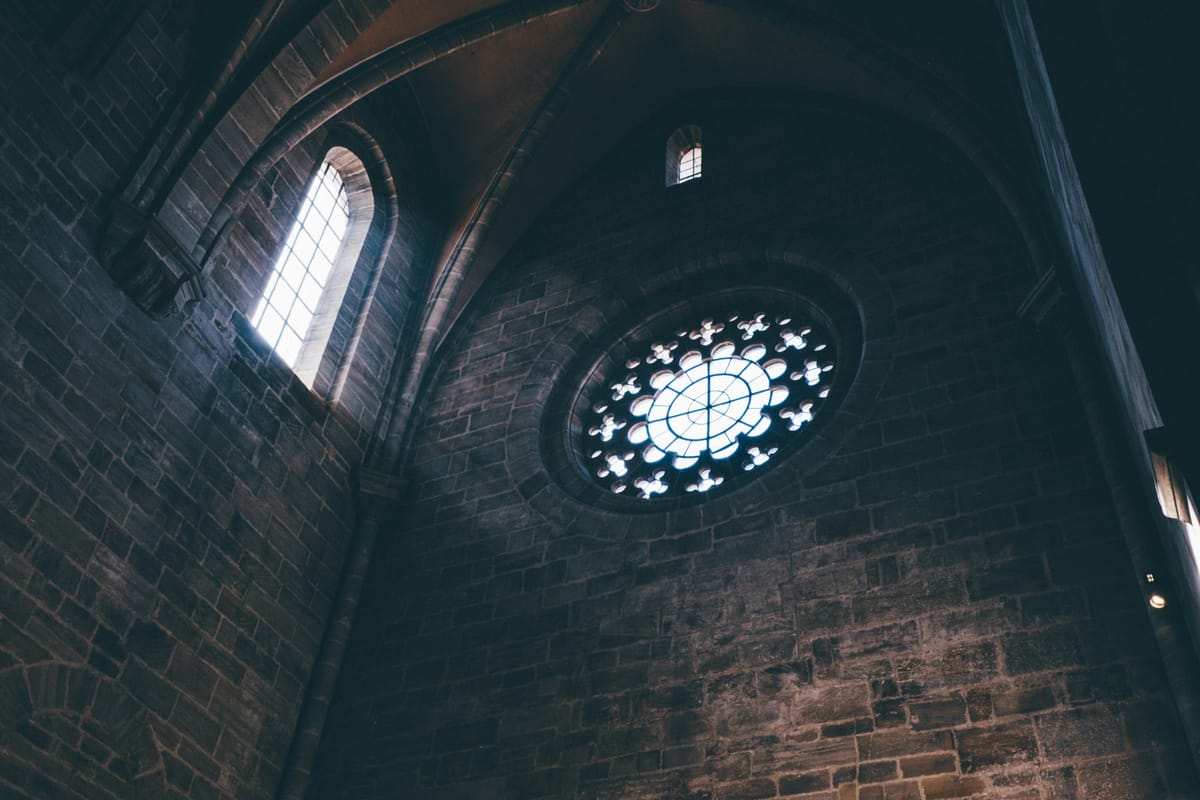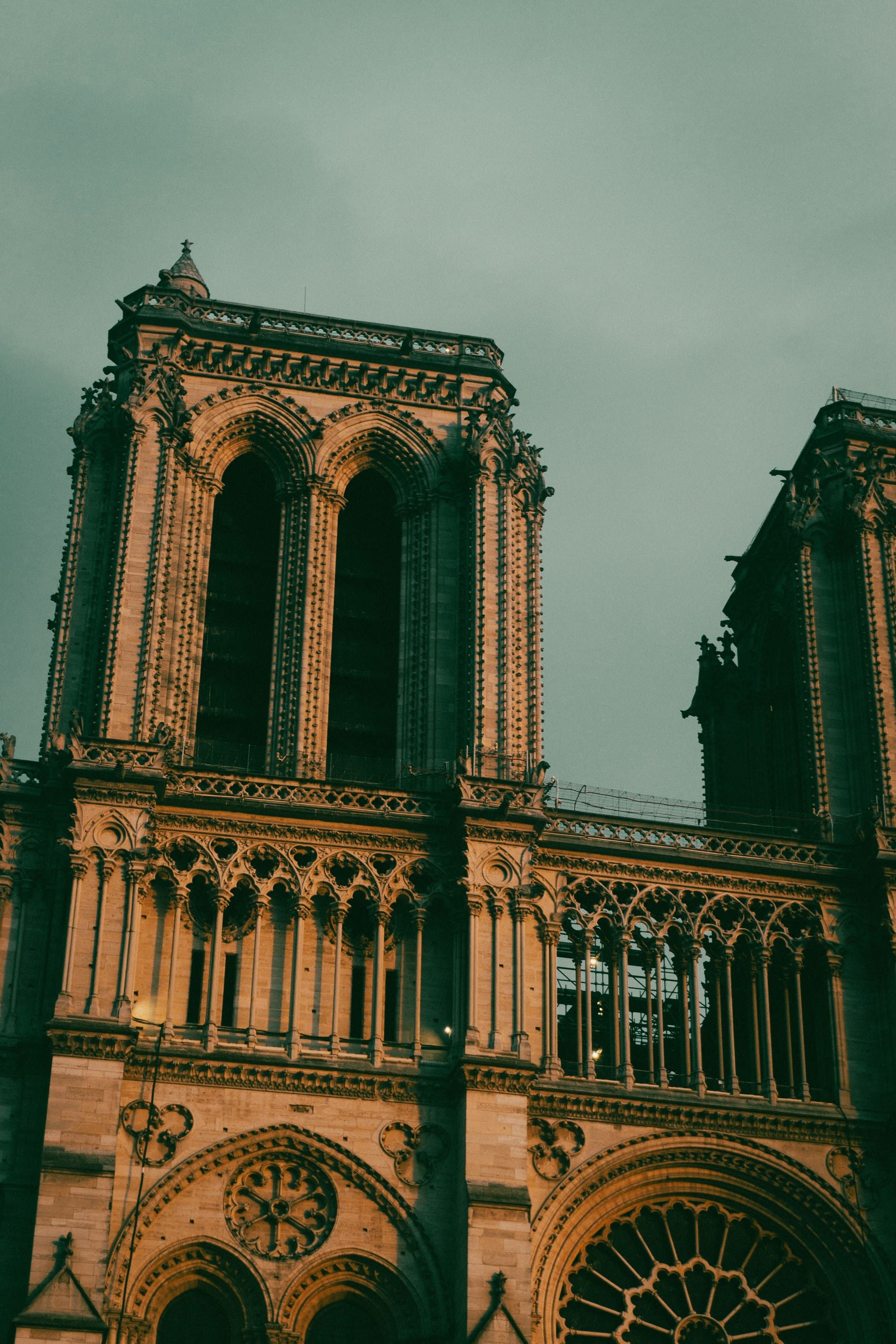The Kind of Writing I Want to Do

I get this question often from friends and family who know I’m writing fiction:
But what are you going to write? Is it fantasy? Is it mystery? Is it scary? Is it sweet? Will it have a happy ending? Will it be sci-fi? Fantasy? Not romance, right?
I think I finally know how to answer. But the answer came from an unexpected place.
One of the challenges of writing is that it pushes you as a writer to define your lane — your voice, your genre, your style, and even more than that your underlying goals and beliefs about writing. Nearly as soon as I started writing fiction again I began to feel my way toward some things. Yet, I couldn’t quite articulate them. They shaped much of The Paranormal Dinner Club without me being able to name it.
But I think I finally can:
I write gothic architecture.
That's a little weird, so let me explain.
I don’t mean I just write about gargoyles or in the middle ages and I certainly don’t mean “goth” and ripped leather pants from Hot Topic. I mean gothic. The clarity about this comes, surprisingly, from a writer in the Victorian era commenting on gothic architecture. The writer’s name is John Ruskin and I found his work “The Nature of the Gothic” by way of a thread from The Cultural Tutor. He lists seven principles of gothic architecture but when I read them I thought, “That’s exactly the writing I’m trying to do!”
Here, then, are the qualities of the kind of writing I want to pursue:
- Savageness // In contrast to the chasing of “perfection” in classical architecture, the gothic embraced the wildness of the world. It feels risky and dangerous to stand at times in a gothic cathedral, and I love that. Ruskin said, “all things are literally better, lovelier, and more beloved for the imperfections which have been divinely appointed.”
- Writing should embrace the wildness and savageness and imperfection that create true beauty. It is the imperfections of love and relationships and bodies and backgrounds that give life and writing their deepest beauty.
- Changefulness // In the middle ages craftsman were not all attempting to make their work completely uniform but had creative freedom in the execution. No gothic building is exactly like another. It’s why Notre Dame is so utterly unique. Every artist approached every work seeking to do something “changeful.”
- Writing should seek to be singular and unique and able to be written by only that particular author. It should reflect the gifts, talents, perspective, loves, and life of that particular created being creating.
- Naturalism // Many details in gothic architecture are inspired by and reflect nature. There are details of leaves and flowers and trees, inspired by creation around them. (Which is one of the reasons I think gothic buildings sometimes look strangely “at home” set against nature behind them.)
- Writing should carry a sense of awe for the created world around us, carrying an underlying belief in the beauty of the world.
- Grotesqueness // Perhaps gothic architecture is most famous for gargoyles and grotesques, and I love it for that. It carries with it a strong belief in the supernatural and fantastical, but this wasn't an escape from reality. Instead it reflected the obvious reality of the spiritual world to those in the middle ages. I think it's obvious too, or should be.
- Writing should believe in the supernatural both beautiful and horrible not as a plot device, but believing that is reality. The gothic accepts the realities of evils under the bed and glories over the next mountain peak and we know it to be true.
- Generosity // I think of this as gratuitous beauty. It’s seeing every surface, every corner, every arch, as an opportunity to create beauty. It’s one even surfaces only ever seen by those cleaning the roof reflected small details of craft. Ruskin called this “redundance” — meaning that beauty wasn’t just there on first glance, but the more you looked and the more details observed, the more beauty you’d see.
- Writing be full of gratuitous beauty with wonders tucked into corners and commas unexpectedly. It should reward repeat readings as the craft of characters and arcs and descriptions collide.
- Verticality // Gothic architecture soars. Ruskin calls this “rigidity” because while previous architecture was often horizontal and flat, gothic chased the vertical, requiring rigid materials to help it soar. Anyone who has walked into a building of arches yearning upward, flying buttresses, and high ceilings knows it draws your eye up and up. This is a reflection of a sacred medieval belief in the Divine, a belief that the soul was called upward and that its holy buildings should invite worshippers upward.
- Writing is meant to soar upward. And by this I don’t just mean in flowery language or inspiring moments, I mean that writing is meant to call our souls upward to the divine. Truly good writing carries with it a yearning for a creator from the deepest parts of the human soul.
What kind of fiction am I writing? It's the craft of a medieval stonemason working on Notre Dame. Does that help?
I love fantasy, but this pushes me toward souls more than sorcery. I’m a pastor, but this puts me squarely outside the confines of the Amish Christian romance novel. I love space, but this puts me outside of much soulless sci-fi with no flicker of the Divine. I love plot, but I also want beautiful sentences. I love sentences, but I think in the end they should mean something that matters eternally. So if I can I want to carve out my own little corner of the world with the craftsmen of the middle ages.
This is what I hope to do in my fiction. I'm not there yet, by any means. But I think I know where I want to go. I may never get there. But the attempt will be glorious.
So here's what I'm currently working on:
- Working through revisions and edits for The Paranormal Dinner Club book one tentatively titled An Unsettling Dinner on a Mysterious Island.
- Writing the sequel tentatively subtitled A Desperate Dinner in Besieged Castle (first three pages are done).
- I want to use Paranormal Dinner Club to improve my craft – after 15 years of not writing fiction I'm rusty and need to stretch and strengthen muscles I haven't used in a long, long time.
- Worldbuilding out some fantasy ideas I have for a next project--too early to talk about yet but this one will be much more ambitious and take place in an entirely new world.
But as I work, I think I have my manifesto:
I want to write gothic archictecture.
